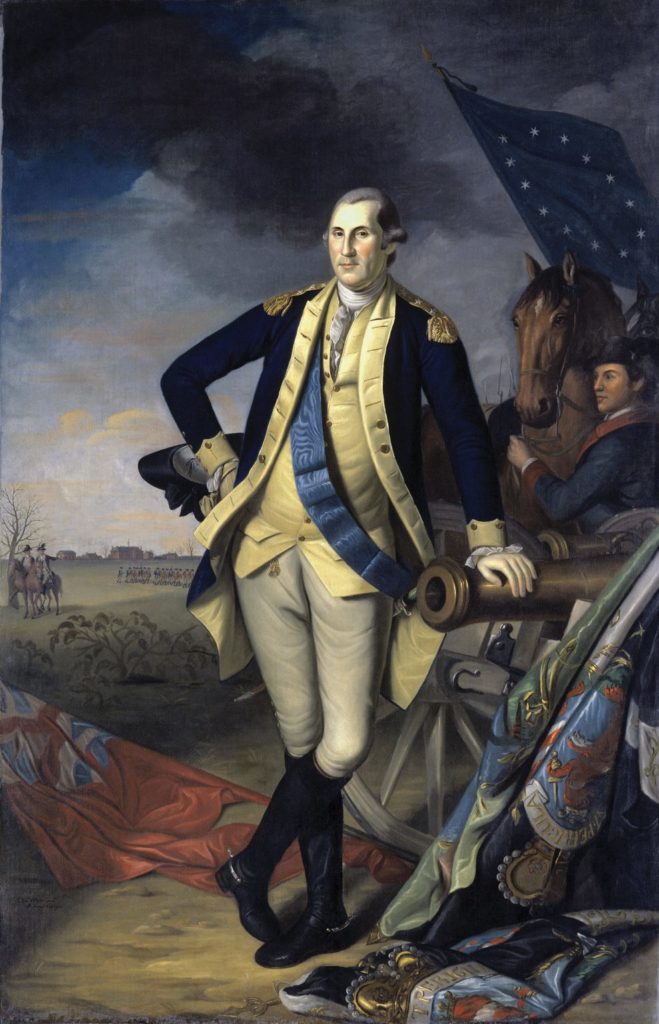
With offensive slurs and threats thrown around, Friday’s election of a House speaker was another example of a lack of civility in America.
But our first president, George Washington didn’t have the best of dispositions either. He had a reputation for “tumultuous passions that accompany greatness,” Gouverneur Morris, one of the Founding Fathers, noted of Washington.
The Latin word civilis means “relating to public life, befitting a citizen.”
Ethics teacher, Michael Josephson defines the principles of civility: “treat others with consideration; conform to accepted notions of taste and propriety in dealing with others; never resort to intimidation, coercion, or violence. Tolerate other people’s beliefs and accept individual differences without prejudice.”
At a young age, George Washington translated a French book of etiquette that contained 101 rules of civility that hewould use to overcome his “tumultuous passions.” Here are a few:
- Every action in company ought to be with some sign of respect to those present.
- Speak not when others speak, sit not when others stand.
- Read no letters, books, papers (or cell phones) in company; but when there is a necessity for doing it, you must ask to leave.
- Let your continence be pleasant, but in serious matters somewhat grave.
- Show not yourself glad at the misfortune of another, though he were your enemy.
- They that are in dignity or office have in all places precedency, but whilst they are young, they ought to respect those that are their equals in birth or other qualities.
- Strive not with your superiors in argument, but always submit your judgment to others with modesty.
- When a man does all he can, though it succeeds not well, blame not him that did it.
- Being to advise or reprehend anyone, consider whether it ought to be in public or in private, presently or at some other time, also in what terms to do it; and in reproving show no signs of choler [anger], but do it with sweetness and mildness.
- Mock not nor jest at anything of importance; break no jests that are sharp or biting; and if you deliver anything witty or pleasant, abstain from laughing thereat [at the place] yourself.
- Wherein you reprove [accuse] another be unblamable yourself, for example, is more prevalent than precept.
- Use no reproachful [judgmental] language against anyone, neither curses nor revilings [criticisms].
- Detract not from others, but neither e excessive in commending.
- Give not advice without being asked; and when desired, do it briefly.
- Think before you speak.
- When another speaks, be attentive yourself, and disturb not the audience; interrupt him not, nor answer him till his speech be ended.
- Undertake not what you cannot perform, but be careful to keep your promise.
- When you deliver a matter, do it without passion and indiscretion, however, mean the person may be to you.
- Be not tedious in discourse, make not many digressions, nor repeat often the same matter of discourse.
- Be not angry at table, whatever happens; and if you have reason to be so show it not; put on a cheerful countenance, especially if there be strangers, for good humor makes one dish a feast.
- Speak no evil of the absent, for it is unjust.
- Let your conversation be without malice or envy, for it is a sign of tractable [amenable] and commendable nature, and in all causes of passion admit reason to govern.
- Be not hasty to believe flying reports to the disparagement of anyone.
- Associate yourself with men of good quality if you esteem your own reputation, for it is better to be alone than in bad company.
- Labor to keep alive in your breast that little spark of celestial fire called conscience.
In reading this short list of Washington’s rules, I found more than one that I need to pay closer attention to. So, this commentary is written for me as well as you.
Comments











